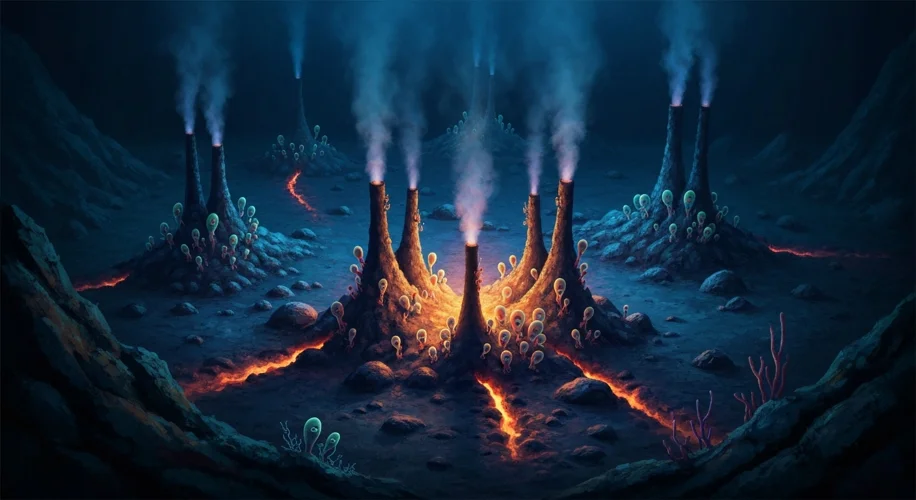Did life on Earth begin not under the sun, but in the deep, dark abyss of the ocean floor? That’s the fascinating question NPR’s Short Wave podcast explored recently. It’s a concept that really makes you think about where we came from, and perhaps more excitingly, where else in the universe life might be hiding.
The idea is that the extreme conditions on the ocean floor – think high pressure, no sunlight, and unique chemical environments – might have been the perfect petri dish for life’s very first spark. Specifically, hydrothermal vents, those volcanic hotspots on the seafloor, are often pointed to as potential nurseries for early life. These vents spew out chemicals that could have provided the energy and building blocks needed for life to emerge.
Why is this so interesting? Because it shifts our perspective on what kind of environments might support life beyond Earth. We often look for planets with conditions similar to our own surface – liquid water, a breathable atmosphere, sunshine. But if life can start and thrive in the crushing pressure and chemical soup of our own deep oceans, then the possibilities for alien life expand dramatically.
Imagine moons in our solar system like Europa (a moon of Jupiter) or Enceladus (a moon of Saturn). Both are thought to have vast oceans hidden beneath icy shells, and there’s evidence of hydrothermal activity on their seafloors. If life got its start in similar conditions here on Earth, then these distant, icy worlds become even more compelling candidates for harboring life.
It’s not just about finding water; it’s about understanding the fundamental ingredients and conditions that allow life to begin. The ocean floor origin theory suggests that life might be more resilient and adaptable than we previously assumed. It could arise in places we might deem too harsh or alien, relying on chemical energy rather than sunlight.
This line of thinking is crucial for our ongoing search for extraterrestrial life. It broadens our search parameters and encourages us to look at planets and moons with a wider lens. The next time you look up at the night sky, remember that the answer to whether we are alone might just be hidden in the deepest, darkest parts of our own planet’s oceans, or in similar, unseen depths across the cosmos.

